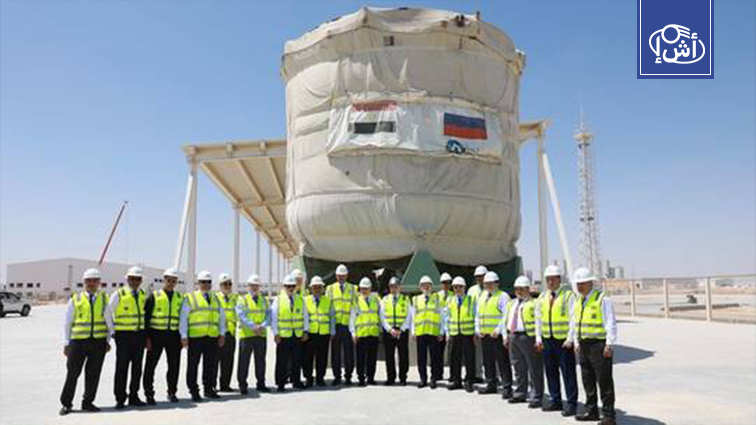The Nuclear Power Plants Authority in Egypt announced the arrival of the reactor core trap for the third nuclear unit to the Dabaa Specialized Port coming from Russia.
Amjad Al-Wakil, Chairman of the Board of Directors of the Authority, confirmed that the cargo ship that carried the main components of the reactor core trap left Russia at the end of last June, and the shipment arrived safely according to plan, and the total weight of the shipment reached 480 tons.
The agent said: “Achievements are continuing rapidly to achieve Egypt’s nuclear dream. Last year witnessed the arrival and installation of the reactor core trap for the first nuclear unit and the second nuclear unit, and today the Dabaa Specialized Port, prepared to receive the nuclear equipment for the Dabaa project, is witnessing the arrival of the third long-term nuclear equipment, which is… The reactor core trap of the third nuclear unit.”
The agent explained that this equipment is expected to be installed next October, stressing that the reactor core trap enhances the safety system in the station and reflects the highest rates of nuclear safety, ensuring the safe and continuous operation of the Dabaa nuclear station, which is one of the distinctive equipment of the advanced third-generation Russian reactors. 3+, which is a unique protection system installed under the bottom of the reactor vessel with the aim of increasing the degree of security and safety of the station.
The Dabaa nuclear plant is the first peaceful nuclear power station to generate electricity in Egypt. It will be built in the city of Dabaa in Matrouh Governorate. It will consist of four nuclear reactors with a total capacity of 4,800 megawatts, with 1,200 megawatts for each reactor.
The station is being built according to a set of contracts that entered into force in December 2017, and includes integrated contracts for engineering, supply and construction, supply of nuclear fuel, operation and maintenance support, and storage of spent fuel.
Russia’s revenues from the sale of energy resources exceed expectations in the first half of 2024
